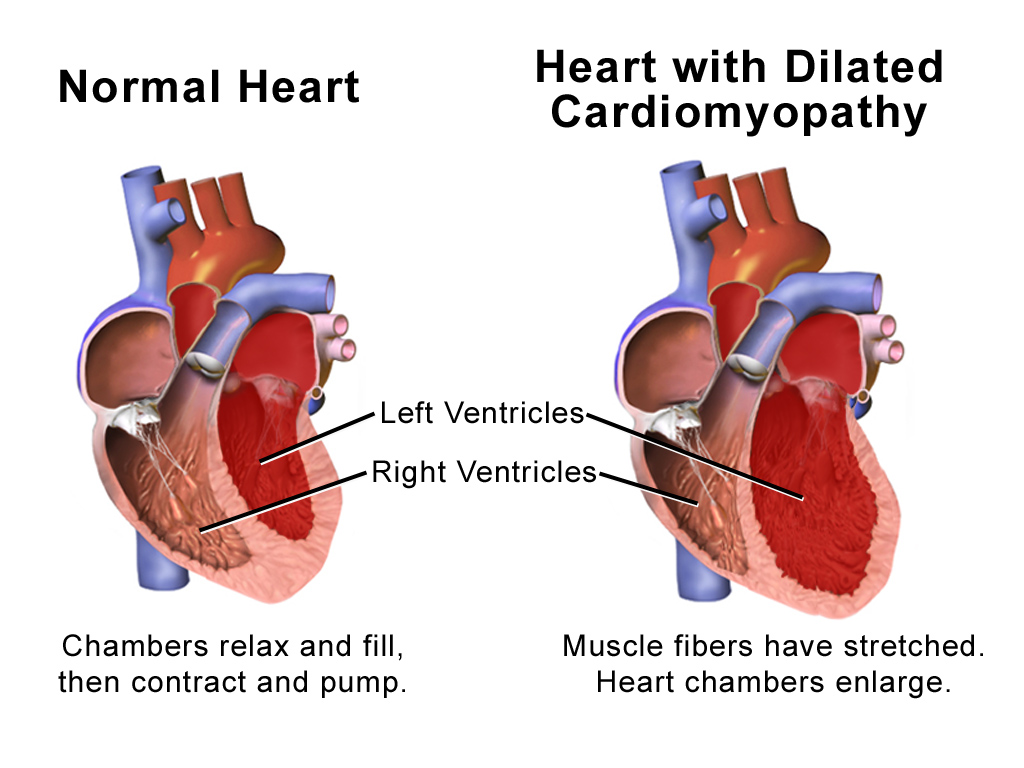A new study published in the American Journal of Physiology - Regulatory, Integrative and Comparative Physiology describes how Drosophila melanogaster develop similar heart complications as humans when they become obese. Rather than feeding them a high fat diet to induce obesity, researchers selected flies that were resistant to starvation over 65 generations. The so-called starvation resistant Drosophila had dilated hearts that had an impaired ability to contract. Interestingly, the problem was caused by fat deposits literally shifting the position of the heart as opposed to fat deposits within the heart muscle as seen in other models. Perhaps not surprisingly, fasting reversed the effects.
Dilated hearts have larger chambers, but the muscle layers are thin (see image below). This makes it harder for the heart to pump blood effectively and can result in heart failure.
Prior studies have shown that the starvation resistant Drosophila compensate by reducing energy expenditure (i.e. not flying) and building up stores of fat and sugars (Schwasinger-Schmidt et al., 2012). While the similar idea of a thrifty gene that helps store fat in case of famine is debated for humans, the changes seen in the flies may make them a good additional model for understanding the complex relationship between weight gain and heart disease.
Sources:
Hardy CM, Birse RT, Wolf MJ, Yu L, Bodmer R, Gibbs AG. Obesity-associated cardiac dysfunction in starvation-selected Drosophila melanogaster. American Journal of Physiology - Regulatory, Integrative and Comparative Physiology. 309(6): R658-R667, 2015.
Schwasinger-Schmidt TE, Kachman SD, Harshman LG. Evolution of starvation resistance in Drosophila melanogaster: Measurement of direct and correlated responses to artificial selection. Journal of Evolutionary Biology. 25:378-387, 2012.
https://www.sciencenews.org/article/ancient-famine-fighting-genes-cant-…
- Log in to post comments

.jpg)




If scientists will understand how to take profit from flies - it would be very cool. Nowdays I have traps in every corner of my house.